Summer is finally here but you wished you had your own garden? You can still have one if you want. Just start your vegetable garden before the autumn and harvest your own vegetables. You do not need to have a green thumb to grow vegetables and fruits. Indeed, making and maintaining a vegetable garden requires only a little bit of patience. If you have doubts about your gardening skills, here are 15 tips to help you grow plants and vegetables in your garden.
1. Choose the right location for your garden

Your garden needs:
- 6 to 8 hours of sunshine per day.
- Close to water.
- Be at a distance of 5 meters from the roots of a tree.
2. Opt for biodegradable containers

This trick is a great way to reuse your toilet paper rolls and to create biodegradable planters for your seeds. You can even plant the seeds in the planters directly in your garden since they will decompose with time.
3. Choose easy to manage vegetables

If you want to keep it simple, choose vegetables that will not require too much effort, such as radishes, courgettes, cherry tomatoes, beans, spinach and peppers.
4. Choose quality earth

For your vegetables to grow properly, your soil must be rich and well drained. You can, of course, enrich it with compost and organic fertilizer. If your soil is made with clay or poorly drained, install your vegetable garden over a newspaper base and by putting around some planks of wood.
5. Create rows
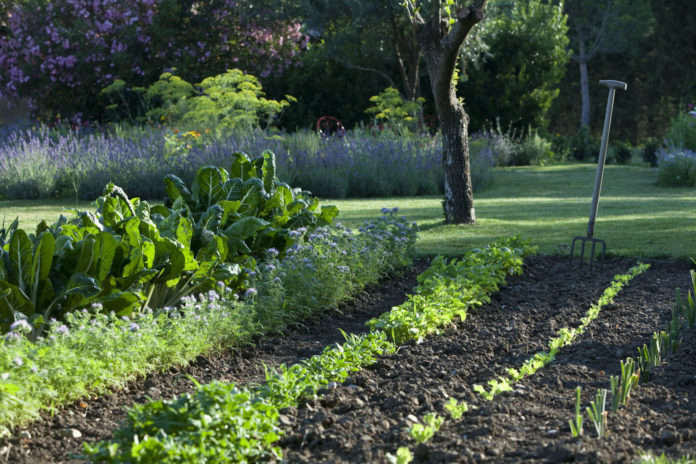
When you plan your vegetable garden, lay out your plants in rows. These rows should not be wider than the length of your arms. Make rows of 30 cm or 12 inches wide between each row so you get good circulation. Think about the sun and how big your vegetables will get before planting them anywhere.
6. Remove salt from your pots
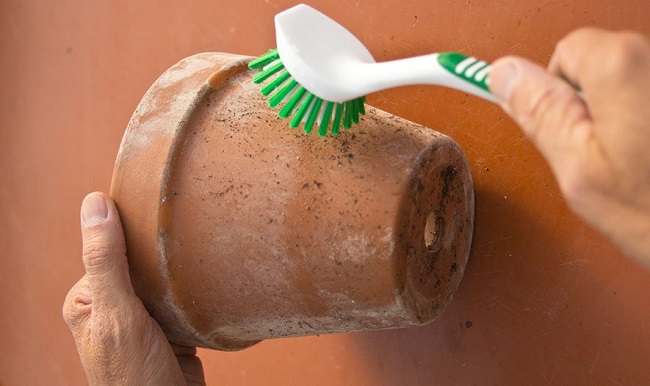
Most expert gardeners know that salt deposits can break argyle pots. Thankfully, you can make a special soap with vinegar, alcohol and water to clean your pots. Mix these ingredients in a spray bottle then spray it on your pots. The salt will be easy to remove.
7. Place seeds on toilet paper
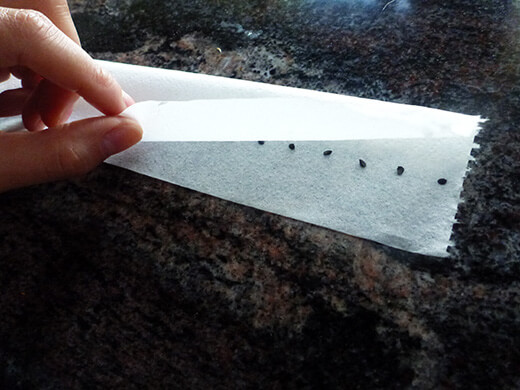
If you want a quick and affordable way of making your own seed strips, all you need to do is use toilet paper, water and flour. Make a paste with the flour and water (1 part flour for 3 parts water) and gently deposit it on the toilet paper. Then, place the seeds on the paste and deposit the seed strip in your garden beds. Easy, cheap and effective!
8. Plant several types of vegetables

Plant several types of vegetables in your garden to keep away parasites and to promote the sharing of water and of the nutrients.
9. Protect your plants from frost
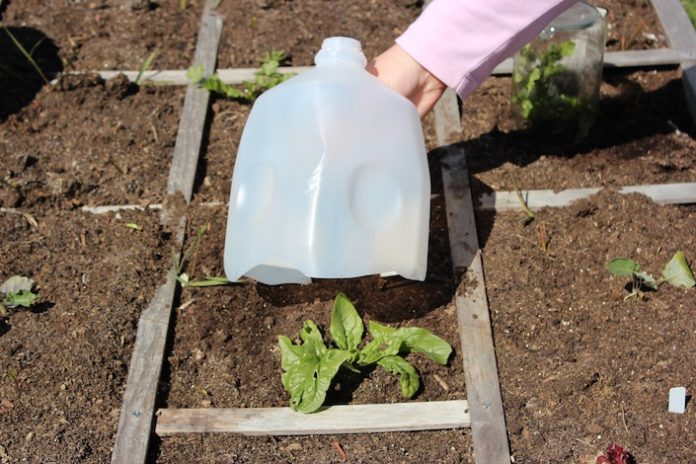
Cold cracking and night frosts can kill your plants in a heartbeat. Thankfully, a milk carton can save your plants. All you need to do is cut the bottom of the carton and place it on top of your most fragile plants. The plastic will help regulate the plants’ temperature.
10. Water your plants well

Water your garden wisely. Indeed, your garden needs only one or two waterings per week, no more.
11. Add mulch

When your plants reach a height of 10 cm (4 inches) you will need to add mulch. This addition will enrich your soil and keep it moist, in addition to avoiding weed growth.
12. Incline your garden to have an appropriate drainage
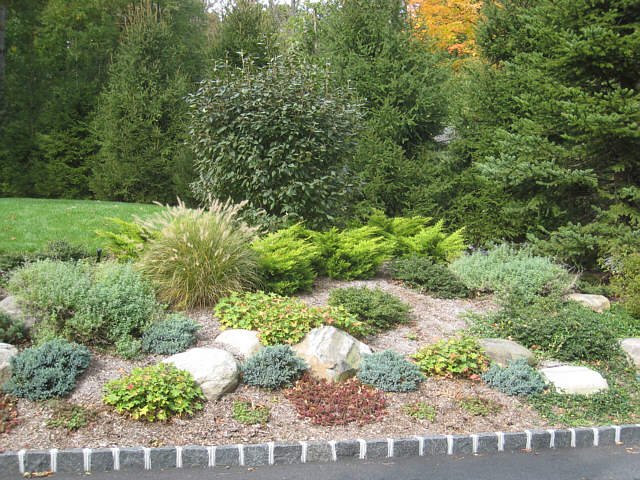
There is nothing worse than a garden that is too watered. Thankfully, if you incline your garden and flowerbeds, this will create a natural drainage system that will help the extra water drain from the roots. This way, you will avoid rotted roots.
13. Plant flowers and aromatic plants

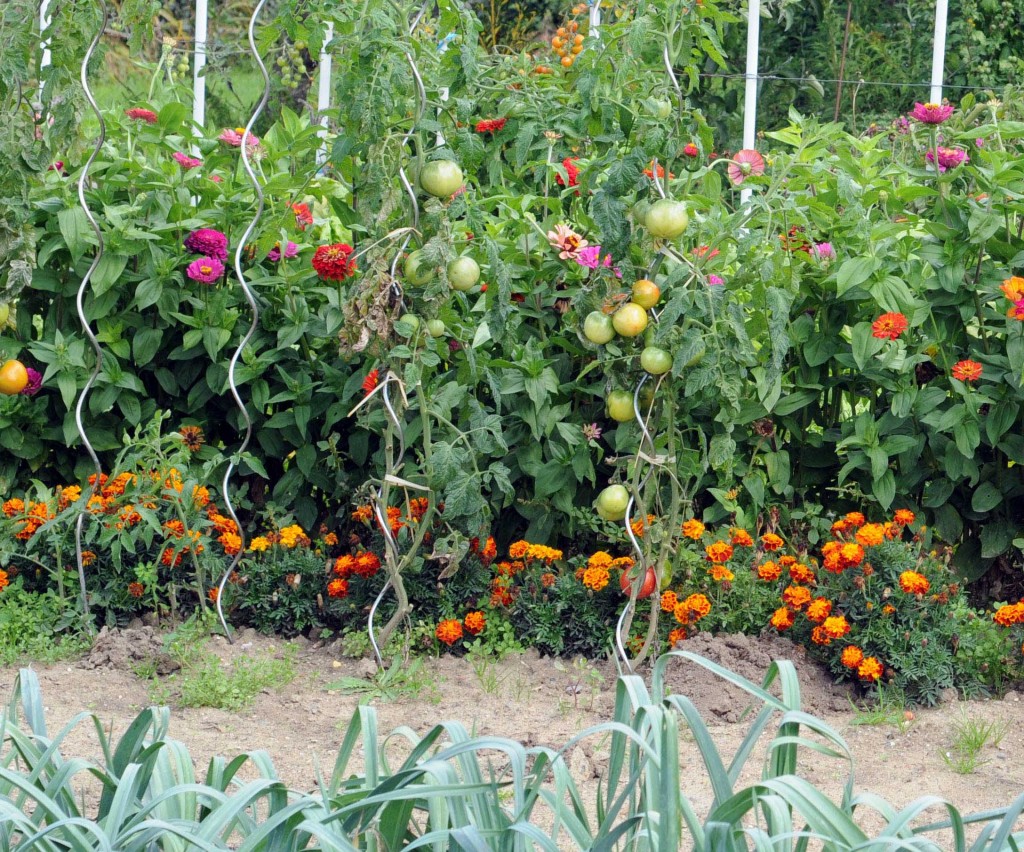
Do several animals hang around your vegetable garden? Plant flowers and aromatic plants (basil, sage, marigold flowers, etc.) near your garden.
14. Remove weeds

Once or twice a week, take the time to remove weeds in your garden. They spread quickly and can absorb water and the nutrients needed to grow your vegetables.
15. Get the right equipment

To take care of your vegetable garden, equip yourself very well. You will need:
- A hoe;
- A garden fork;
- A rake;
- A shovel;
- A wheelbarrow or large buckets to transport the land and vegetables;
- A garden hose or a watering can;
- Gloves, hat, knee pads (optional).
Source:
pratico-pratiques.com


![[Photos] Why WD-40 Is Magic In Your Garden?](https://lifetonik.com/wp-content/uploads/sites/7/2019/08/WD40-Prices-Highres_Page_8_Image_0008-218x150.jpg)





![[Photos] Take A Look Of The Obama’s New Home Before It’s Banned](https://lifetonik.com/wp-content/uploads/sites/7/2019/07/Obama1-218x150.jpg)

![[Slideshow] Celebrity Homes: 21 Of The Most Luxurious](https://lifetonik.com/wp-content/uploads/sites/7/2019/07/Taylor-Swift-218x150.jpg)
![[Slideshow] More Parents Are Now Gluing Pennies to the Bottom of their Kid’s Shoes](https://lifetonik.com/wp-content/uploads/sites/7/2019/07/Keep-Them-Entertained-218x150.jpeg)
![[Photos] 20 Fashion Mistakes That Too Many Women Make!](https://lifetonik.com/wp-content/uploads/sites/7/2019/07/5-style-mistakes-that-make-you-look-frumpy-featured-218x150.jpg)










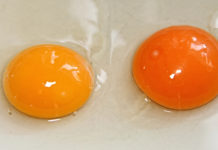








![[Gallery] 25 Discounts For Seniors To Which You Are Entitled Without Knowing It](https://lifetonik.com/wp-content/uploads/sites/7/2019/08/EAZxECUXUAAvNZR-218x150.jpg)
![[Slideshow] Here’s the salary of every governor in the United States](https://lifetonik.com/wp-content/uploads/sites/7/2019/08/Charlie-Baker-218x150.jpg)
![[Photos] No One Will Want To Buy This House After Seeing These Pictures](https://lifetonik.com/wp-content/uploads/sites/7/2019/08/terrible-real-estate-photos-2-5c35e727c9f95__700-218x150.jpg)



